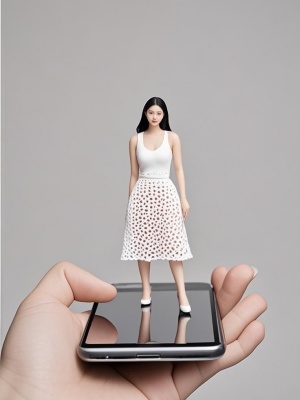The Vibrant World of Pop Art Statues: A Modern Artistic Revolution
Pop art statues have become iconic symbols of contemporary culture, blending bold colors, commercial imagery, and mass-produced aesthetics into three-dimensional form. These sculptures capture the essence of pop art movement while adding new dimensions of interactivity and public engagement.
The Origins and Evolution of Pop Art Statues
From Canvas to Sculpture
The transition from two-dimensional pop art to three-dimensional statues began in the 1960s when artists like Claes Oldenburg started creating oversized sculptures of everyday objects. These pop art statues challenged traditional notions of fine art by celebrating mundane consumer goods through monumental forms.

Key Characteristics
- Bold, vibrant colors that grab attention
- Exaggerated proportions and scale
- References to popular culture and consumerism
- Use of industrial materials and production methods
Contemporary Pop Art Statues in Public Spaces
Urban Revitalization Through Art
Modern pop art statues serve as focal points in urban environments, transforming public spaces into vibrant cultural hubs. Cities worldwide commission these works to stimulate tourism and community engagement. For example, our gallery features several digital interpretations of famous pop art statues.
Problem-Solution Matrix
- Problem: Sterile urban environments lack character
- Solution: Pop art statues inject personality and color
- Problem: Public art often feels inaccessible
- Solution: Pop art's familiar imagery creates immediate connection
The Digital Transformation of Pop Art Statues
AI and Pop Art Fusion
With advancements in AI art technology, pop art statues are entering a new era. Artists can now create digital prototypes using AI tools before physical production, allowing for more experimental designs. This fusion maintains the movement's rebellious spirit while embracing modern techniques.
Interactive Digital Exhibits
Many museums now offer augmented reality experiences where visitors can interact with virtual pop art statues through their smartphones. This innovation extends the movement's democratic ideals by making art more accessible and engaging.

Collecting Pop Art Statues
Investment Potential
Limited edition pop art statues by renowned artists like Jeff Koons have become valuable collector's items. According to Christie's auction house, prices for significant pop art sculptures have appreciated by an average of 12% annually over the past decade.
Starting Your Collection
- Research emerging artists through platforms like Artsy
- Attend pop art exhibitions and gallery openings
- Consider digital pop art statues as affordable alternatives
Conclusion: The Enduring Appeal of Pop Art Statues
Pop art statues continue to captivate audiences by bridging high art and popular culture. As the movement evolves with digital technologies, these vibrant sculptures maintain their ability to challenge, delight, and provoke. Whether in physical form or digital iterations, pop art statues remain powerful expressions of our consumer-driven society.
For those interested in exploring more artistic transformations, check out our guide on turning portraits into artistic masterpieces.